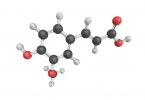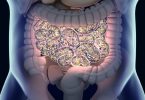Many people may experience (or be experiencing) acephalgic migraine and not even realize it. The symptoms of the condition are easily confused with a myriad of other illnesses and / or may go largely unnoticed. But before we get too far into the symptoms of acephalgic migraine, let’s examine what actually defines the condition first.
Acephalgic migraine is a very rare form of migraine in which traditional headache pains never surface and difficulties seem to be centrally focused on optics. The illness is not confined to any particular age group or other condition(s), but is often misdiagnosed. Those suffering from acephalgic migraine may report scintillating scotoma, which is a form of optical distortion giving the illusion of bright lights in the field of vision or blurry patches. Acephalgic migraine can be virtually transparent and unnoticeable or so severe that it is confused with a host of other serious conditions like stroke. The exact cause(s) of acephalgic migraine aren’t known, but it is clear that it is a real neurological syndrome which has been thoroughly documented.
Treatment of acephalgic migraine is often light or not needed at all, however this isn’t to say that it cannot be a debilitating condition. Though physical pain is not an issue with acephalgic migraine there are usually other somewhat debilitating issues to contend with like; nausea, or photophobia (extreme sensitivity to light). In general, acephalgic migraine tends to affect more females than males (as is the case with classic migraines). Likewise, those who experience a great number of acephalgic episodes earlier on in life are often seen to develop classic migraines later on in life; once again, the link between the two is unclear.
If you are experiencing symptoms of acephalgic migraine (or perhaps suspect that you might be) you should schedule an appointment with your general practitioner whenever possible. The actual preventative treatments for acephalgic migraine are nearly identical to that of classic migraine, in case you were wondering; but often, no medical treatment is required.







